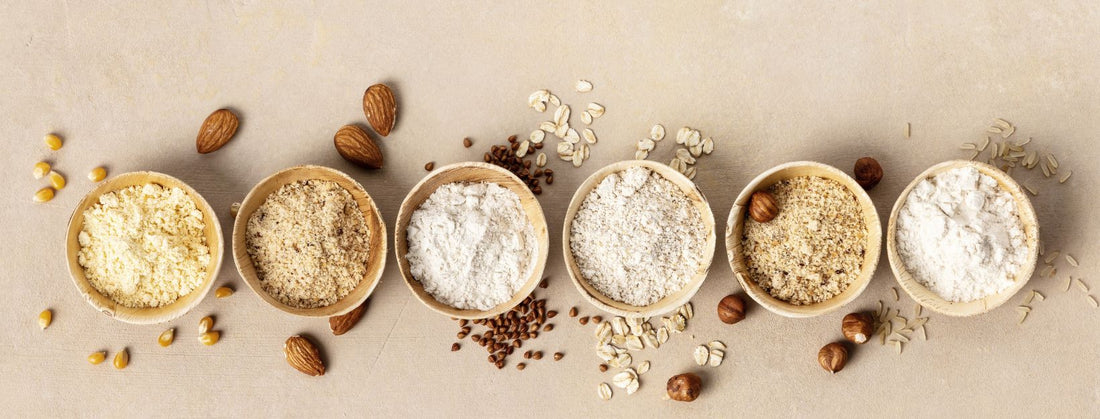
Exploring the Nutritional Benefits and Considerations of Almond, Coconut, and Other Popular Flours
Welcome to a comprehensive exploration of the various flours used in both traditional and specialty baking. From almond and coconut to wheat and rice flours, this guide discusses the nutritional benefits and important considerations associated with each type. Ideal for those interested in understanding how different flours fit into dietary preferences like keto, paleo, or gluten-free lifestyles.
- Benefits: Almond flour is low in carbohydrates and high in healthy fats and dietary fiber. It's an excellent source of vitamin E and magnesium, making it beneficial for heart health and blood sugar regulation. It's also gluten-free, which is crucial for those with celiac disease or gluten intolerance.
- Considerations: Almond flour is more expensive than many other flours. It also has a high calorie density, which might be a concern for those monitoring calorie intake.
- Benefits: Coconut flour is extremely high in fiber and low in carbohydrates, which makes it perfect for low-carb diets. It's also nut-free, reducing allergen concerns, and is less expensive than almond flour.
- Considerations: Coconut flour can be challenging to bake with due to its high absorbency. A lot of moisture, usually in the form of eggs, is needed to prevent baked goods from becoming too dry. Its slightly sweet taste might also alter the flavor profile of certain recipes.
- Benefits: Wheat flour is incredibly versatile and is the staple for a variety of baking recipes from bread to pastries. It's rich in carbohydrates, especially whole wheat varieties, which offer dietary fiber, vitamins, and minerals.
- Considerations: Wheat flour contains gluten, which can cause adverse reactions in people with celiac disease or gluten sensitivity. It also has a high glycemic index, which may affect blood sugar levels.
- Benefits: Rice flour is a good gluten-free alternative that is easy to digest. It works well for recipes requiring a light texture.
- Considerations: It's nutritionally less dense compared to other flours like almond or coconut flour. Rice flour is also high in carbohydrates, which is not suit low-carb diet plans.
- Benefits: Oat flour is rich in nutrients and antioxidants and has more protein and fiber compared to wheat flour. It's particularly good for heart health and can help regulate blood sugar levels. Oat flour provides a lower glycemic index option compared to other grains, making it beneficial for blood sugar control.
- Considerations: While oats are naturally gluten-free, they are often processed in facilities that handle wheat, leading to potential cross-contamination. Oat flour is also more absorbent than wheat flour, which may require recipe adjustments. In terms of carbohydrates, oat flour is lower in carbs than conventional wheat flour but higher than low-carb flours like almond or coconut. This makes it a moderate carbohydrate option, suitable for those managing their carb intake but not ideal for ketogenic diets.
Each flour offers unique benefits and comes with its own set of considerations, making it essential to choose based on your dietary needs, cooking or baking requirements.
At KetoMe, we utilize almond and coconut flours in our cookies, leveraging their low-carb properties to offer delicious, guilt-free treats suitable for those following keto, paleo, or gluten-free diets. These flours not only contribute to the delightful texture and flavor of our cookies but also align with health-conscious dietary choices, making KetoMe cookies a perfect option for anyone looking to indulge without compromising their dietary guidelines.

